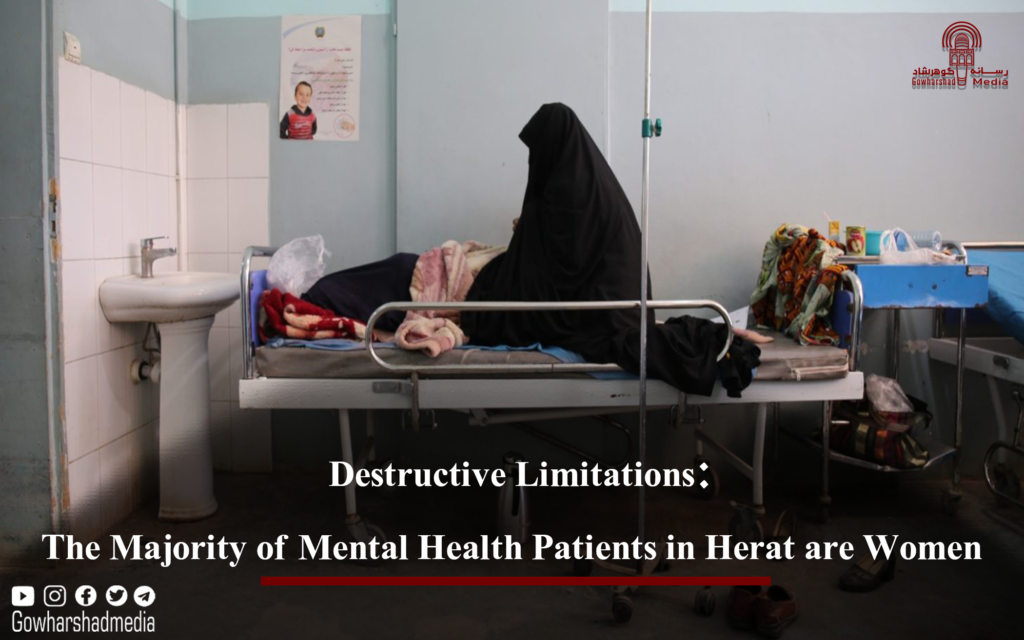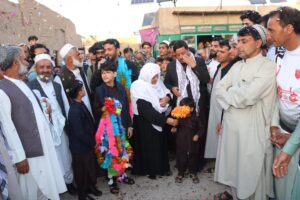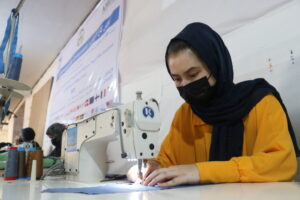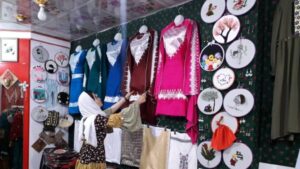Health sources from the provincial hospital in Herat report that the number of individuals suffering from mental health issues in this province has increased, with the majority of patients being women and girls. At least two health sources mentioned that more than 50 mental health patients or individuals suffering from depression seek treatment at the Herat provincial hospital daily, with women and girls comprising most of these cases.
The source indicated that the majority of the patients are young women and girls who suffer from existing restrictions and an increase in domestic violence. According to the source, women and girls visiting the provincial hospital complain about limitations, domestic violence, and harassment from people in public spaces.
The source stated, “Most of the patients say that if these issues are not addressed, in the coming years, the number of individuals with mental health problems and depression in society, especially among women and girls, will multiply. When mental health issues and depression increase in society, controlling and treating them will require significant expenses.”
Additionally, some female students and women employees in Herat express that after schools and universities were closed and severe restrictions were imposed on women’s employment, they have developed mental health issues and have even contemplated suicide.

Psychological Pressure and Out-of-School Girls
Razieh Sadeqi states that she and her classmates have developed depression and psychological problems due to the prolonged closure of schools. Razieh, 16 years old, was in the tenth grade when schools were closed, and three years later, they remain shut.
With a lump in her throat, she said that her small shoulders cannot bear the heavy burden of being away from school and her classmates. Razieh and over a million other girls have been barred from school and university, many of whom have resorted to hard labor, forced marriages, and migration.
Fatemeh, one of the students who endured seven years of hardship in medical studies to become a doctor and alleviate people’s pain, now finds herself unable to help others due to her own illness. Instead of sitting in a doctor’s chair, she now works behind a sewing machine.
Now Instead of the Operating Room, She Finds Herself in Iran. Like many female students who faced forced migration after the fall of Afghanistan and the closure of universities.
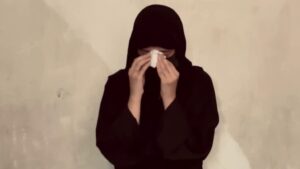
A Mother Who Lost Her Job
Zubaida Rasooli, who was an employee at a non-governmental organization, lost her job due to the return of the caretaker government and restrictions on women’s work.
Zubaida, a mother of three children, says: “My daughter was in the sixth grade when schools were closed. Her father lost his job, and I was working at an organization, but after a while, I also lost my job. My husband was forced to migrate to Iran for work. My mental state deteriorated significantly, and I attempted suicide. Even a psychiatrist could not help me.”
Zubaida emphasized: “The future is uncertain. The weak family economy, poverty, and unemployment over the past three years have led me to severe mental illness and depression, and I even resort to tranquilizers.”
She added: “Unfortunately, the current living conditions in Afghanistan have caused depression, especially among women. When we visit clinics, one of the departments with the most patients is the mental health section.”
For three years, the caretaker government has closed schools for girls above the sixth grade. Simultaneously, all educational centers have been closed to girls and women, and women’s work in governmental and non-governmental organizations has also been prohibited.
Razieh, Fatemeh, and Zubaida, like thousands of Afghan girls and women, have been unable to fulfill their dreams. As they put it: “Being a woman in Afghan society was hard, but now it feels like nothing but punishment. Why else are we being so severely punished?”
The right to education and employment is a fundamental human right that should be enjoyed by all individuals without any discrimination. This right has been emphasized in various human rights documents. Thus, gender inequality in education and employment is a clear violation of this right.
It should be noted that since the announcement of the closure of universities for girls and the prohibition of women’s work in domestic and international organizations, none of the officials in the caretaker government have been accountable regarding the reasons for or lifting the ban on girls’ education and women’s employment.
Reporter: Yasin fathi

